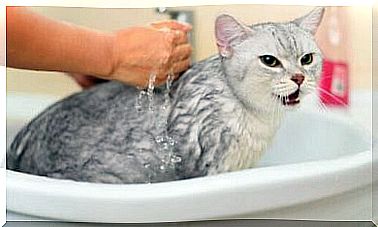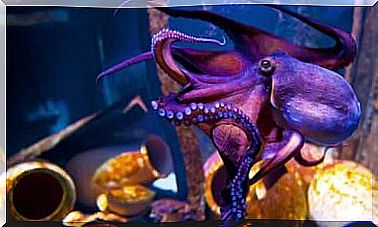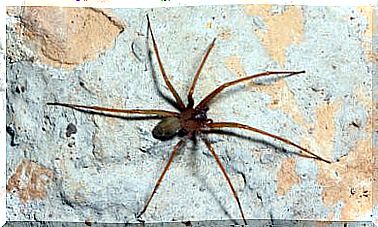How Do Fish Rest?
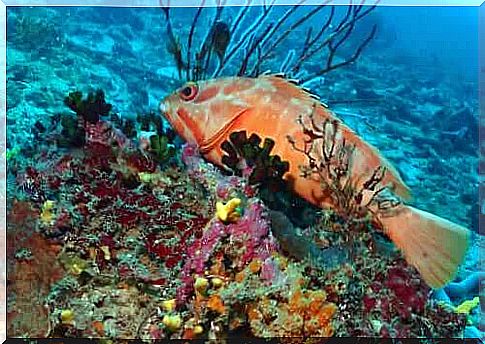
Fish are very special animals that arouse a lot of curiosity, especially in children. One of the most common questions is whether or not these animals sleep in the depths of the water. Next, we’ll look at how fish rest and how they manage to sleep underwater.
Do fish sleep?
All vertebrate or invertebrate animals, unicellular or multicellular, need a few hours of sleep to remain stable. The rest of the fish is essential to preserve the good health of the body and mind. This allows them to decrease neuronal activity, shine their colors and regain energy.
The great curiosity about the fish dream is that these animals never close their eyes. This is due to an anatomical characteristic of fish, which is the absence of eyelids. The eyelids are an evolutionary adaptation of terrestrial animals, whose main function is to protect the eyes from dryness.
Fish do not need eyelids, as their eyes are always hydrated in a marine environment. Consequently, fish sleep with their eyes open and, at first glance, they appear to be awake.
How do fish rest?
Now that we know fish need sleep, it’s a good time to ask ourselves what this rest period is like. As with humans, fish rest consists of a significant reduction in physical and neuronal activity.
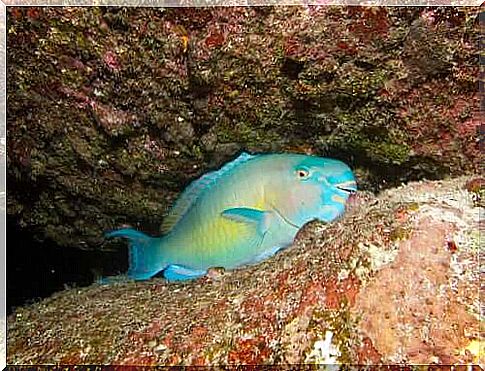
However, unlike human sleep, fish rest does not reach the REM phase. In other words, a fish will never sleep as deeply as a person, because it is never completely unconscious while sleeping.
When a fish is sleeping, it stops swimming and only moves its fins very slightly to remain stable in the water: remaining in a resting state. But when he identifies any strange or abrupt stimuli in his surroundings, he will quickly react to be alert and flee.
As the fish is more vulnerable while resting, it usually hides between rocks or in a more hidden corner of the aquarium. That way, you can go unnoticed by your predators and sleep safely.
In addition, some species have developed very curious protection techniques to be able to sleep peacefully.
Parrotfish, for example, are able to secrete a mucous membrane on their head that forms a kind of transparent cocoon around their body. This cocoon is believed to help hide its odor, which throws off predators.
the sleep of sharks
It’s not hard to see that sharks are a very particular species of fish, and their sleeping habits are also unique. Unlike the vast majority of fish, sharks are able to stay swimming while they sleep.
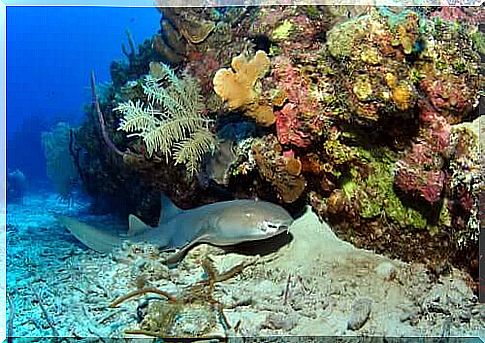
Their ‘ technique’ is to keep their mouths open to capture the maximum amount of oxygen with the least effort as they continue to swim through the water. Water is conducted to the gills, where oxygen is synthesized and then distributed to your body’s tissues through your blood.
When do fish sleep?
Another common question about fish sleep is whether it occurs at night, like humans do, or whether they maintain nocturnal habits and sleep during the day, like bats.
The truth is that each species of fish can maintain its own resting habits. Some fish are more diurnal and sleep at night, while others are more nocturnal and use the day to rest. This is also related to the natural habitat of each fish, as well as water temperature, availability of sunlight, etc.
How do aquatic mammals sleep?
It is also common to ask ourselves frequently whether the sleep of aquatic mammals is equal to the rest of fish. And the answer is no.

Many aquatic mammals, such as whales and dolphins, are able to swim even when they are asleep. Although they significantly reduce their physical and neural activity, these species rest while swimming.
During sleep, these species deactivate only half of their brain and thus manage to considerably reduce energy expenditure. However, the part of the brain responsible for breathing remains active because otherwise the animal would die.
Since these are aquatic mammals, not fish, they need to go to the surface to take in oxygen. Therefore, they cannot rest statically nor are they totally unconscious during sleep.



